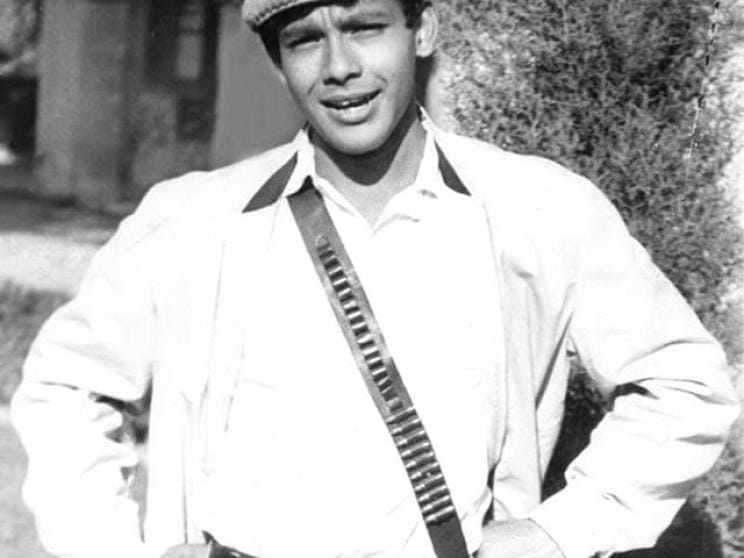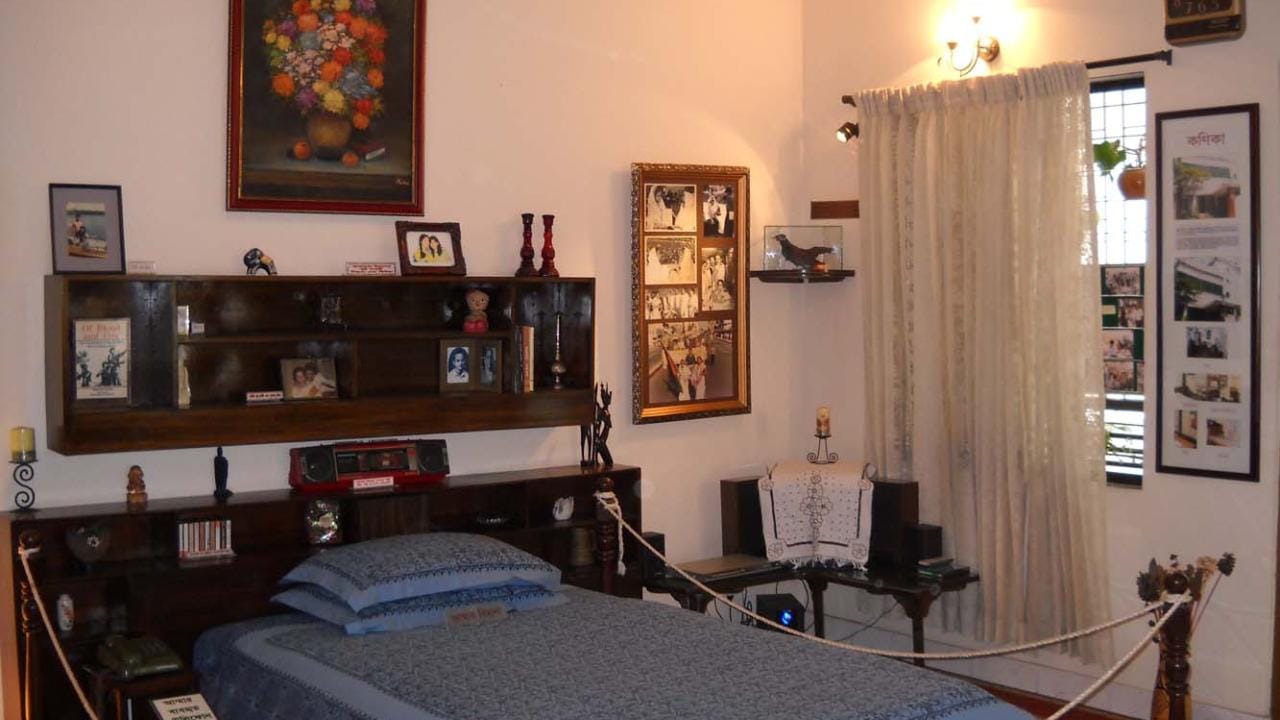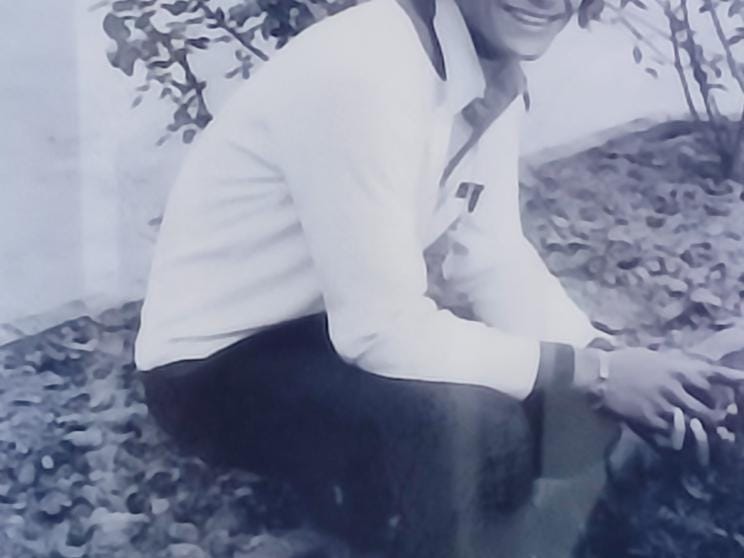Remembering Shaheed Shafi Imam Rumi: Memories of a brother
Many of us already know of Shaheed Shafi Imam Rumi as a valiant freedom fighter through Ekattorer Dinguli, penned down by his illustrious mother Shaheed Janani Jahanara Imam. In a humble attempt to understand him more intimately, we recently interviewed his brother, Saif Imam Jami. Here, we present, a lesser-known side of the Rumi saga: the memories of a brother.

Those were the days!
Rumi has gone down in history as a young freedom fighter with an indomitable spirit, Shaheed Janani Jahanara Imam's son Shaheed Shafi Imam Rumi, Bir Bikram Rumi.
Jami fondly remembers the good times he had with Rumi bhaiya --from playing cricket in the house and occasionally breaking things in the process, to going to a concert with him.
He cherishes how his brother woke him up one morning, as early as 5:00am. They went to Gulshan Lake whilst picking up a couple of friends along the way, and eventually had a swim in that cold morning.
Jami shared, "For me, it was the signal that I am now not just the little brother. I also am old enough to spend time with him -- something like coming of age."

Rumi in the making
Another of these intimate details would be the siblings' resolution of sorts, a signed "document" if you will, from 1962, possibly submitted to their parents. A part of it reads, "We also promise to get up in the morning at the first call and never quarrel among ourselves. We shall always obey our parents' advice and order and never scold the servant."
One may see it as a reflection of the upbringing the brothers had.
In their home, there were books of all genres. From comics to magazines, from James Bond series to sci-fi, they had access to all.
Jami opined that there had been books based on various wars and Che Guevara that influenced his brother to an extent. "These were books that made him aware of the injustices, and so when March 25 happened, for him, it was now our fight," he explained.

Rumi also loved martial arts and was a judo champion. "He was keen on finding out his endurance to pain," Jami elaborated. "There is a move called chokehold, where you try to choke your opponent. Rumi bhaiya used to have me practise that with him, to see how long he could hold his breath."
Perhaps, all these were somehow preparing him to become a freedom fighter.
But as Jami puts it, "If you were born and in that age group in '71, and saw the carnage of March 25, going to the War would seem inevitable."

Accepting the inevitable
So, a brilliant student from a well-off family, who had the opportunity to go abroad to pursue university education, stayed back in Dhaka and eventually joined the guerrilla forces. Unfortunately, on the fateful night of August 29, 1971, the Pakistan army raided their house, and picked Rumi up (along with our interviewee Jami, their cousin, and their father Shariful Alam Imam Ahmed).
Jami, a high school student at that time, recollected that it was a surreal experience seeing the soldiers going about searching their home rather silently, since his mother requested them not to make too much noise as Rumi-Jami's grandfather was in fragile health.
After the search, as we were saying, they were taken for interrogation -- a harrowing episode, to say the least.
Trying to crumble up scattered memories of his time at MP Hostel and Ramna Jail, Jami stated, "When locked up, you often could not say whether it was night or day, or what time it was. You usually did not see the sun or the stars."
He does remember that Rumi at one point was in the same room as him and many others, and that the freedom fighter instructed their father that they should all stick to the story that they didn't know anything other than Rumi being a "renegade".
According to Jami, there were around 20-25 people in the room. Who were the others? Jami answered in a different tangent, saying, "As soon as you begin talking to other captives, the soldiers would come and start beating us arbitrarily. Anybody who complained would make matters worse. You just had to sit there on the floor; head down, don't look left, don't look right, don't look up. Be inconspicuous."
Jami never thought he would return home alive. But he was released, on August 31, along with his father and cousin, after all the ordeals and interrogation.
Rumi on the other hand was not to return, ever again.
"The possibility of this happening has always been on our minds from the time bhaiya left to join the Liberation War," he said. "When we found out that he got selected in the urban guerrilla unit for operations in Dhaka, it became clear that if caught, there was almost no chance of survival unless he could escape. Acceptance came with time. There was not much to deal with. His absence slowly became the reality."

Rumi in our hearts
When asked what he misses the most about his martyred brother, Jami mused, "His absence. Not hearing his voice. Not seeing his illuminating smile."
So that was, in a nutshell, Bir Bikram Shafi Imam Rumi through a brother's eyes. Reading Jahanara Imam's book -- if you haven't already -- shall give you many more details about the family's journey through the Liberation War.

You may also visit Shaheed Janani Jahanara Imam Memorial Museum, located in one of the floors of an apartment -- in the same site where the original house of the family once stood, at 355 Shaheed Janani Jahanara Imam Sarani (old Elephant Road). Simply put the name of the museum in Google Maps and it will take you there. It is open on Saturdays only; from 10:00am to 5:00pm. (till 4:00pm during winter season). Entry is free.
Founded by Jami, the small space hosts many household objects and furniture -- Jahanara Imam's desk, the family dining table, etc -- along with many books, photographs, etc.
Rumi's story is not an exception: it is an example, a vivid illustration of the valour of all the freedom fighters who had given their lives for the cause of freedom.
Saif Imam Jami concludes, "I would like today's generation and future generations to remember not just my brother Rumi. They should remember all the "Rumis" who sacrificed their lives for the liberation of Bangladesh. They should read as many books about our Liberation War as possible, to understand the sacrifices each and every family made. May be then they can truly honour their sacrifices."



 For all latest news, follow The Daily Star's Google News channel.
For all latest news, follow The Daily Star's Google News channel.
Comments